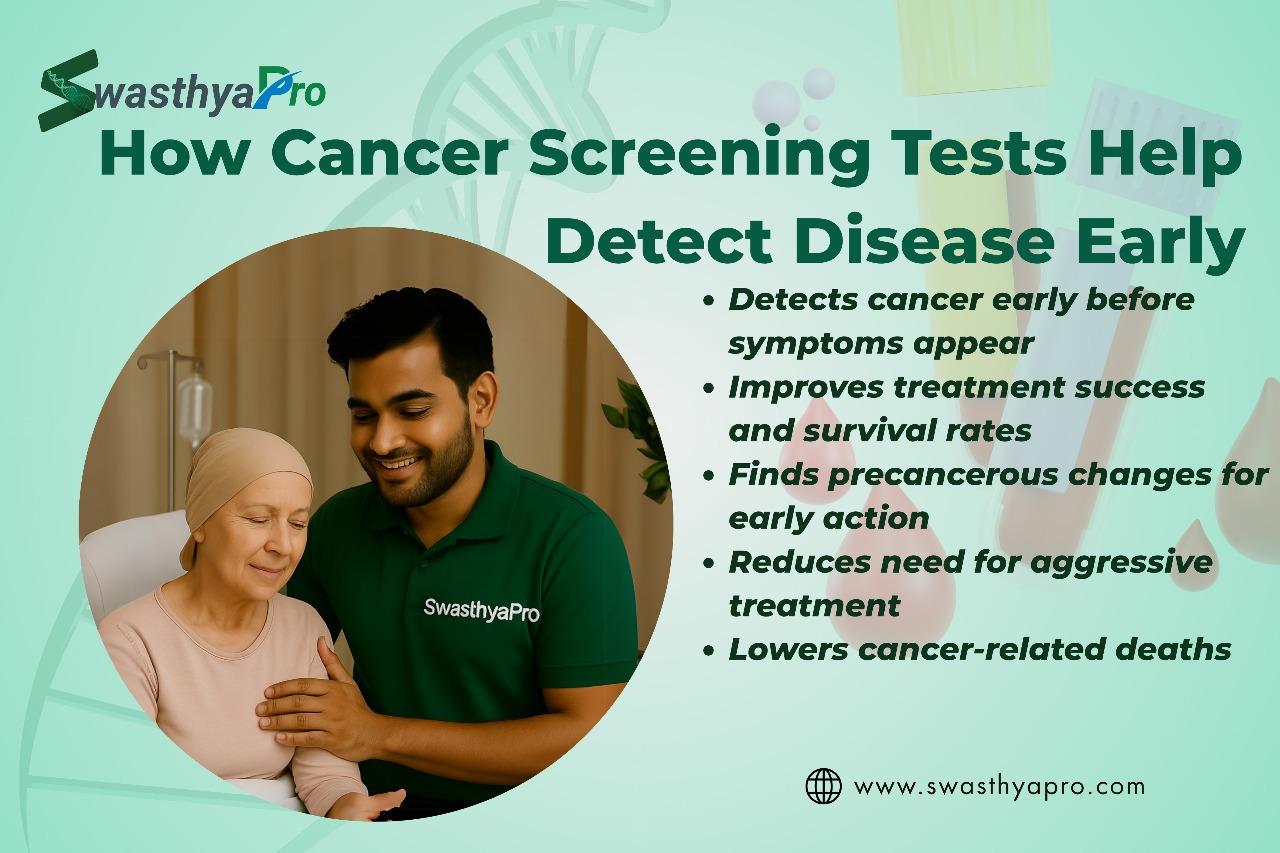Cancer screening test for Smokers: Why It’s Non-Negotiable

If you smoke or have smoked in the past, you already know the risks. But what many people still underestimate is how cancer often grows silently — with no symptoms until it’s dangerously advanced.
That’s why getting a cancer screening test isn’t just smart for smokers — it’s non-negotiable. It could be the difference between catching something early or finding out too late.
In this article, we’ll explain why every smoker — current or former — needs a regular cancer screening test, what types are most important, and how to get started today.
The Link Between Smoking and Cancer
Tobacco is one of the leading causes of cancer worldwide. It’s linked to multiple types of cancer — not just lung cancer — including:
-
Throat and mouth cancer
-
Esophageal cancer
-
Stomach and colon cancer
-
Pancreatic cancer
-
Kidney and bladder cancer
-
Cervical cancer (in women)
Smoking doesn’t just affect the lungs — it creates damage throughout the body. And even if you’ve quit, the risk lingers for years, sometimes decades.
That’s why every smoker should commit to a cancer screening test routine as early as possible.
Why Symptoms Aren’t a Reliable Sign
Most smokers wait for a reason to get tested — a cough, pain, fatigue, or unexplained weight loss.
But by the time these symptoms appear, cancer may already be in an advanced stage. That’s what makes it so dangerous.
A cancer screening test allows you to detect problems long before symptoms begin. This gives you more treatment options, less physical damage, and a higher chance of full recovery.
Key cancer screening test Options for Smokers
Here are the top cancer screening test types smokers should consider based on risk and early detection value:
1. Low-Dose CT Scan (for Lung Cancer)
-
Who it’s for: Adults aged 50–80 with a history of smoking (current or within the last 15 years)
-
How often: Annually
-
Why it matters: It detects small nodules or tumors in the lungs before they spread
This is the most effective cancer screening test to reduce lung cancer deaths in smokers. It’s painless and takes about 10–15 minutes.
2. Oral Cancer Screening
-
Who it’s for: Smokers, tobacco chewers, and heavy alcohol users
-
How often: Every 6–12 months
-
Why it matters: Mouth and throat cancers are often aggressive but curable if found early
This cancer screening test is quick — usually done during a dental or ENT visit — and could save your jaw, voice, or life.
3. Colorectal Screening (Colonoscopy or Stool Test)
-
Who it’s for: Adults aged 45+
-
How often: Colonoscopy every 10 years, or stool test yearly
-
Why it matters: Smoking increases colon cancer risk and can speed up polyp growth
This cancer screening test detects polyps or early-stage colon cancer — and can even prevent it if caught in time.
4. Bladder and Kidney Function Tests
-
Who it’s for: Smokers over 50 or with urinary symptoms
-
Tests include: Urine cytology, ultrasound, or CT urography
-
Why it matters: Blood in the urine could signal cancer caused by prolonged tobacco exposure
Discuss these cancer screening test options with your doctor if you’ve had long-term tobacco use or urinary issues.
5. Full Body Checkup with cancer screening test Panel
Many labs offer comprehensive health packages that include liver, kidney, blood markers, and basic cancer screening test tools — including tumor marker tests.
This is a great place to start if you’re unsure which individual tests to get first.
“I Quit Years Ago — Do I Still Need a Test?”
Yes. The risk doesn’t vanish when you stop smoking. It begins to decline, but certain cancers can develop 10–15 years after quitting — especially lung, oral, and bladder cancer.
Even former smokers should have an annual cancer screening test plan in place, especially if they smoked for a long period or heavily.
How to Get a cancer screening test
Getting started is easy:
-
Book online with trusted labs like 1mg, Redcliffe Labs, Healthians, or Apollo
-
Choose at-home or in-lab options
-
Many packages offer same-day booking and home sample collection
-
Results are usually available in 24–72 hours
-
Follow up with a free doctor consultation if included
Most cancer screening test packages cost between ₹999 and ₹2499 — far less than the emotional and financial cost of late detection.
Final Thoughts
If you smoke, or used to, now is the time to act. A cancer screening test isn’t about fear — it’s about power. The power to catch disease early. The power to take control of your health. And the power to keep living fully without regret.
Don’t wait for a cough that won’t go away. Don’t wait for pain or weakness.
The best time to get screened was yesterday. The second-best time is today.
Schedule your cancer screening test — for your lungs, for your life, for your loved ones.
- Art
- Causes
- Best Offers
- Crafts
- Dance
- Drinks
- Film
- Fitness
- Food
- Игры
- Festival
- Gardening
- Health
- Главная
- Literature
- Music
- Networking
- Другое
- Party
- Religion
- Shopping
- Sports
- Theater
- Wellness



